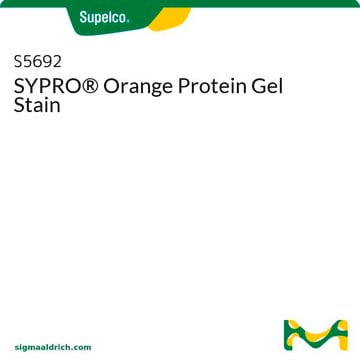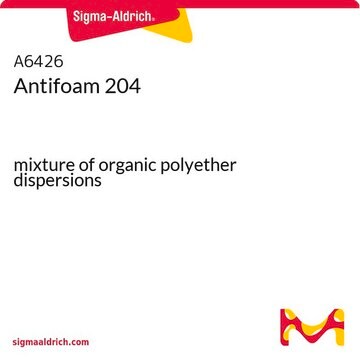M3903
Methoxypolyethylene glycol p-nitrophenyl carbonate
average mol wt 5,000
Synonym(s):
Methoxy PEG Nitrophenyl Carbonate, Methoxypoly(ethylene glycol) nitrophenyl carbonate, Polyethylene glycol, mPEG-NPC
Sign Into View Organizational & Contract Pricing
All Photos(1)
About This Item
Recommended Products
mol wt
average mol wt 5,000
storage temp.
−20°C
General description
Methoxypolyethylene glycol p-nitrophenyl carbonate is a polyethylene glycol (PEG) derivative. PEGs are widely used as a covalent modifier of biologic macromolecules and particulates and for mechanism of drug delivery.
Application
Methoxypolyethylene glycol p-nitrophenyl carbonate has been used in a study to obtain unimolecular dendritic micelles designed as solubility enhancers. It has also been used in a study to investigate the properties of lipase from Candida rugosa modified with Mpeg. It is also useful for modification of proteins.
Storage Class
11 - Combustible Solids
wgk_germany
WGK 3
flash_point_f
Not applicable
flash_point_c
Not applicable
ppe
Eyeshields, Gloves, type N95 (US)
Certificates of Analysis (COA)
Search for Certificates of Analysis (COA) by entering the products Lot/Batch Number. Lot and Batch Numbers can be found on a product’s label following the words ‘Lot’ or ‘Batch’.
Already Own This Product?
Find documentation for the products that you have recently purchased in the Document Library.
Hu Yang et al.
Journal of colloid and interface science, 273(1), 148-154 (2004-03-31)
Unimolecular dendritic micelles designed as solubility enhancers were obtained by coupling polyethylene glycol (PEG) to Starburst polyamidoamine (PAMAM) dendrimers. Micelles-750, -2000, and -5000 have a generation 3.0 dendrimer core (32 primary amine end groups) and PEG arms with molecular weights
Properties of methoxy(polyethylene glycol)-lipase from Candida rugosa in organic solvents
Zacchigna, M., et al.
Il Farmaco Ed. Sc., 53, 758-758 (1998)
Chemistry of polyethylene glycol conjugates with biologically active molecules
Zalipsky, S., et al.
Advanced Drug Delivery Reviews, 16, 157-157 (1995)
F M Veronese et al.
Applied biochemistry and biotechnology, 11(2), 141-152 (1985-04-01)
A single-step method of activation of monomethoxypolyethylene glycols suitable for its binding to polypeptides and proteins is proposed. Based on the reaction with 2,4,5-trichlorophenylchloroformate or p-nitrophenylchloroformate, it gives reactive PEG-phenylcarbonate derivatives. The PEG intermediate is stable on storage, the activating
Our team of scientists has experience in all areas of research including Life Science, Material Science, Chemical Synthesis, Chromatography, Analytical and many others.
Contact Technical Service








